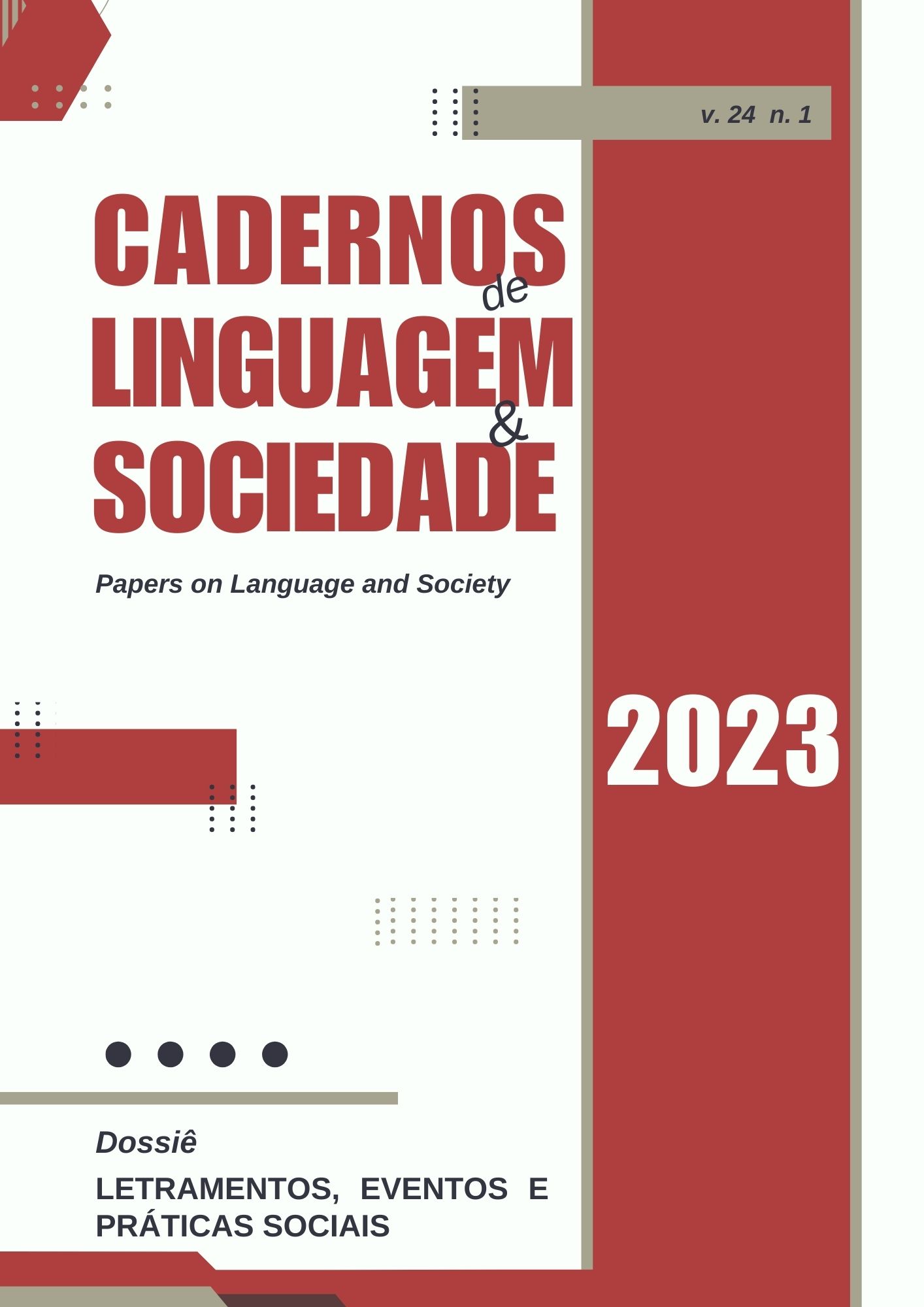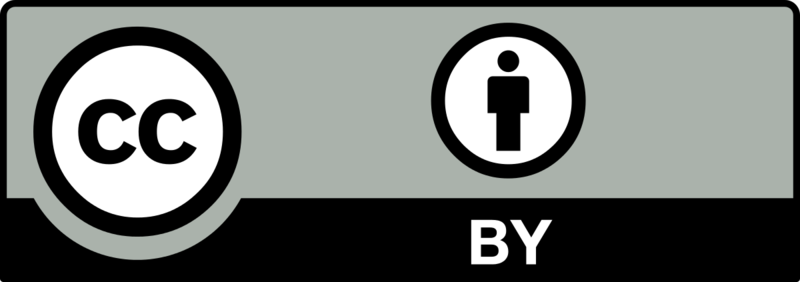CHALLENGES OF INTERCULTURAL BILINGUAL EDUCATION IN THE INTERRELATION OF LANGUAGE, CULTURE AND COGNITION
DOI:
https://doi.org/10.26512/les.v24i1.44853Keywords:
Bilingual intercultural education. Language. Culture. Cognition. Indigenous language. BilingualismAbstract
The essay discusses the interrelation between language-culture-cognition in bilingual intercultural education in indigenous territories. We maintain that bilingualism would favor the school and educational success of indigenous students, who historically account for weak school success in relation to non-indigenous students in the context of cultural hegemony. Thus, the reinforcement of the sociocultural identity affects the capacities of treatment and use of information for the student's cognitive development, allowing links between the cosmogony of their cultural referents and the development of abilities to analyze, synthesize and create objects of helpful knowledge for school success.
Downloads
References
ACHARD BAYLE, G. La linguistique cognitive et ses applications. Recherches en didactique des langues et des cultures. Les cahiers de l'Acedle, Quebec, v. 6, p. 6-2. 2009.
ACHARD-BAYLE, G. Texte, discours, cognition. Journal Semiotica, Francia, v. 223, p. 71-86.2018.
ARENDT, H. La crise de la culture. France: Éditions Gallimard.1972
ARIAS-ORTEGA, K; RIQUELME, P. (Des) encuentros en la educación intercultural en contexto Mapuche, Chile. Revista de estudios y experiencias en educación, Concepción, v. 18, n. 36, p. 177-191.2019.
ARIAS-ORTEGA, K. Relación educativa entre profesor mentor y educador tardiconale n al educación inetrcultural. Tesis de Doctorado (no publicada). Universidad Católica de Temuco, Chile.2019.
ARIAS-ORTEGA, K. Voces de educadores tradicionales mapuches sobre la educación intercultural en la Araucanía, Chile. Revista diálogo Andino, Arica, v. 67, p. 31-47.2022.
BOAS, F. Introduction Handbook of American Indian languages (B.A.E. – B40). Washington: Smithsonian Institute. 1911.
BRADSHAW, P. et al., Language development and enjoyment of reading: impacts of early parent-child activities in two growing up in scotland cohorts. The Scottish Government: Children and Families Analysis. Published by the Scottish Government. 2016.
BRENNEIS, D. Some Cases for Culture. Human Development, Estados Unidos, v. 45, n. 4, p. 264–26.2002.
CĂTĂLINA, Ş. De l’approche communicative à la perspective actionnelle: une démarche qui passe par le CECRL. Journal of Humanistic and Social Studies, Rumania, v.12, n.2, p.91-107.2021.
CHMIELEWSKI, P. Language, culture, individual and society. Conference of workshop in political Theory and Policy Analysis, may, 1-3. Indiana: Bloomington, Indiana University. 1993.
COSSIO, R. Teorías de la cultura y diagnóstico sobre la educación intercultural en el Perú en sus aspectos lingüísticos y literarios. Tesis Doctoral. Granada: Universidad de Granada. 2015
DAVIS, P. Cognición y aprendizaje: reseña de investigaciones realizadas entre grupos etnolingüísticos minoritarios. SIL e-Books. 2014.
FREIMUTH, H. Language and culture. Journal UGRU, Granada, v. 2, p. 1-11. 2006.
GAGLIARDI, L. Cultura visual, Lengua y Literatura: territorios en común. Plurentes, Argentina, v.10. n.11, p.1-19. 2020.
GARDNER, H. Multiple approaches to understanding. Contemporary Theories of Learning, Estados Unidos, p.129-138. 2018.
HAMEL, E. Comunidad indígena y educación intercultural bilingüe. Estrategias bilingües y prácticas escolares. Informe final CONACyT, México: UAM. 2001.
HOWELLS, A. A Daily Guide for Language and Culture Learning. Nigeria Evangelical Missionary Institute. 1990.
KLUCKHOHN, C; KELLY, W. The concept of culture. The science of man in the world crisis. Estados Unidos, Columbia University Press. 1945, p. 78- 106.
LAUREN, V. Formation à la méthodologie de l’enseignement du français langue étrangère et développement de l’agir enseignant. Thèse en didactique des langues et des cultures, université Paris, Sorbonne nouvelle.2013.
LAVORIEL, S. La revitalisation des langues amérindiennes en Amérique latine. Revue internationale, Quebec, p. 2-25. 2015.
LETH, H. Langue et culture: jamais l´une sans l´autre. Revue Synergies Pays Scandinaves, Francia, v. 4, p. 79-88. 2009.
LAMBELET, A. Lengua, cultura y cognición: el caso del género gramatical. Interlingüística, España, v. 22, p. 67-80. 2012.
MARGULIS, M. Sociología de la cultura: conceptos y problemas. Buenos Aires: Editorial biblos. 2009.
MINEDUC. Programa de Educación Intercultural Bilingüe 2010-2016. Chile: Ministerio de Educación División de Educación General Programa de Educación Intercultural Bilingüe. 2017.
PAPALIA, D; FELDMAN, R. Experience Human Development. Canada: Edition McGraw-Hill Education’s. 2015.
PIAGET, J. Psicología de la inteligencia. Buenos Aires: Psique. 1977.
PIAGET, J. Quantification, Conservation, and Nativism: Quantitative evaluations of children aged two to three years are examined. Science, Estados Unidos, v. 162, n. 3857, p. 976-979.1968.
PILCO, P. Estrategia didáctica para la producción literaria en kichwa en la Unidad Educativa Fray Bartolomé de las Casas. Master's thesis, Pontificia Universidad Católica del Ecuador. 2016.
RAMÓN, G. La “lengua Guzmango” en Cajamarca colonial: contexto y perspectivas. Chungará, Arica, v. 53, n. 4, p. 665-676. 2021.
RIQUELME, E. et al. Predominancia de la educación emocional occidental en contexto indígena: necesidad de una educación culturalmente pertinente. Psicologia Escolar e Educacional, Brazil, n. 20, p. 523-532. 2016.
RUEDA, M; WILBURN, M. Enfoques teóricos para la adquisición de una segunda lengua desde el horizonte de la práctica educativa. Perfiles Educativos, México, v. 36, n. 143, p. 21-28. 2014.
SAPIR, E. The psychological reality of phonemes. Selected writings of Edward Sapir in language, culture, and personality, Berkeley Los Angeles, 1949, p. 46-60.
SEMIN, G. Language, culture, cognition. How do they intersect? Problems and solutions in Cross-Cultural Research, Theory and Application. New York: Psychology Press. 2009.
SIGNORET, A. Bilingüismo y cognición:¿ cuándo iniciar el bilingüismo en el aula?. Perfiles Educativos, México, v. 25, n. 102, p. 6-21. 2003.
SIGNORET, A. Cognición, pensamiento y lenguaje: Perspectivas teóricas desde la psicolingüística, la adquisición del lenguaje y la psicología. Estudios de Lingüística Aplicada, México, n. 50, p. 1-19. 2009.
SOTO, G; HASLER, F. El morfema -fu del mapudungun: la codificación gramatical del antiperfecto. Revista Alpha, Osorno, n.40, p.95-112. 2015
TARDIF, J. Pour un enseignement stratégique. Montréal: Éditions Logiques. 1992.
THÉRIAULT, J. Langue et politique au Québec: entre mémoire et distanciation. Revue Hérodote, Francia, v.3, n. 126, p. 115-127. 2007.
TORRES, H. La educación intercultural bilingüe en Chile: experiencias cotidianas en las escuelas de la región mapuche de La Araucanía. Tesis Doctoral, Universidad Laval, Quebéc, Canadá. 2017.
VYGOTSKY, L. Pensée et Langage. Paris: Editions Sociales. 1985.
VIVAS, J. ¿Por qué el estudio del lenguaje es fundamental para la cognición? Revista Sophia, Ecuador, n. 20, p. 67-85.2016.
WINDMÜLLER, F. Apprendre une langue, c’est apprendre une culture. Leurre ou réalité. Giessener Elektronische Bibliothek. 2015
Downloads
Published
How to Cite
Issue
Section
License
Copyright (c) 2022 Cadernos de Linguagem e Sociedade do Programa de Pós-Graduação em Linguística da UnB é licenciado sob uma Licença Creative Commons Atribuição-Uso não-comercial-Vedada a criação de obras derivadas 3.0 Unported.

This work is licensed under a Creative Commons Attribution 4.0 International License.



